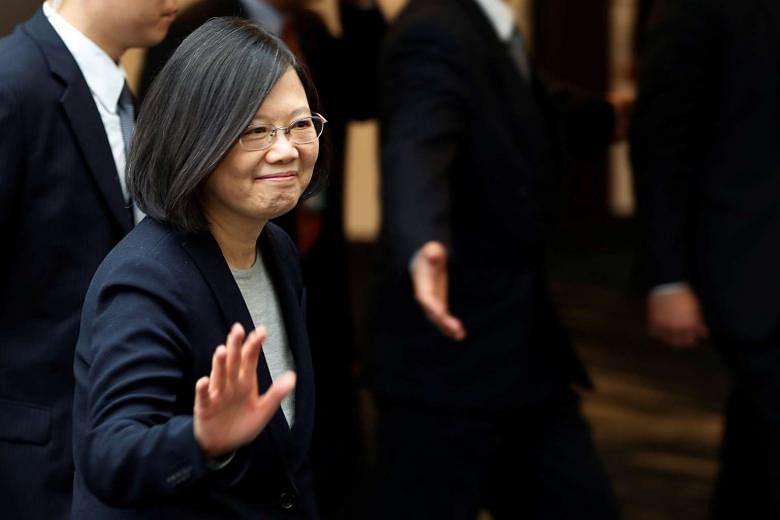In a move aimed at healing lingering wounds, President Tsai Ing-wen has vowed to mount a thorough investigation of an anti-government uprising that led to a bloody massacre of thousands in 1947.
Pledging an "open and transparent" probe of how the Kuomintang (KMT) government, under former leader Chiang Kai-shek, quelled the Feb 28 uprising, Ms Tsai said she wants the government to establish a "clearer and more detailed" account of those responsible for the killings. This will require officials to declassify more files on what is commonly known as the 2/28 incident.
Doing so will ensure that the incident is remembered not only for its victims but also its perpetrators, said Ms Tsai. "We will not forget this mission, nor will we avoid it."
She was speaking to families of victims of the massacre in a closed- door meeting, ahead of the 70th anniversary of the tragedy on Tuesday, when she will commemorate it as Taiwan's leader for the first time.
The mass protest began after an inspector beat a local female trader in Taipei for selling untaxed cigarettes. In the ensuing crackdown branded the "White Terror", the KMT government tortured and shot dead as many as 30,000 people. Today, people are still suffering the consequences, said Ms Tsai.
While acknowledging that previous governments had apologised, carried out probes, erected monuments to those who died and compensated their families, she added that the bitterness has not subsided. Her Democratic Progressive Party ousted the KMT in the polls last year.
"We absolutely should not say that history has passed or the pain can be put down," she said.
Ms Tsai's assurances are part of her push for transitional justice since her election campaign. In keeping an inauguration speech promise, she set up a Truth and Reconciliation Commission in the Presidential Office to prevent any return of the White Terror era of suppression of political dissidents from 1947 to 1987. Thus far, it has not made its findings public.
The killings have been a source of lingering anger against the KMT that traces its roots to China, in the midst of a rising Taiwanese identity and dwindling support for any sort of unification with China.
Beijing cut off all official communication with Taipei after Ms Tsai took office in May last year because she did not acknowledge the "one China" principle. China has set that as the bottom line for continuing cross-strait exchanges.
Beijing on Wednesday called the uprising a part of the Chinese people's struggle for liberation, and accused Taiwan's separatist elements of distorting historical facts for "ulterior motives".
National Sun Yat-sen University political scientist Liao Da-chi said Beijing will be watching closely how Ms Tsai will make good on her promise to enforce transitional justice. "If (she does) not, she will squander the faith some Taiwanese and the victims' families have in her... people will not take her words seriously."

